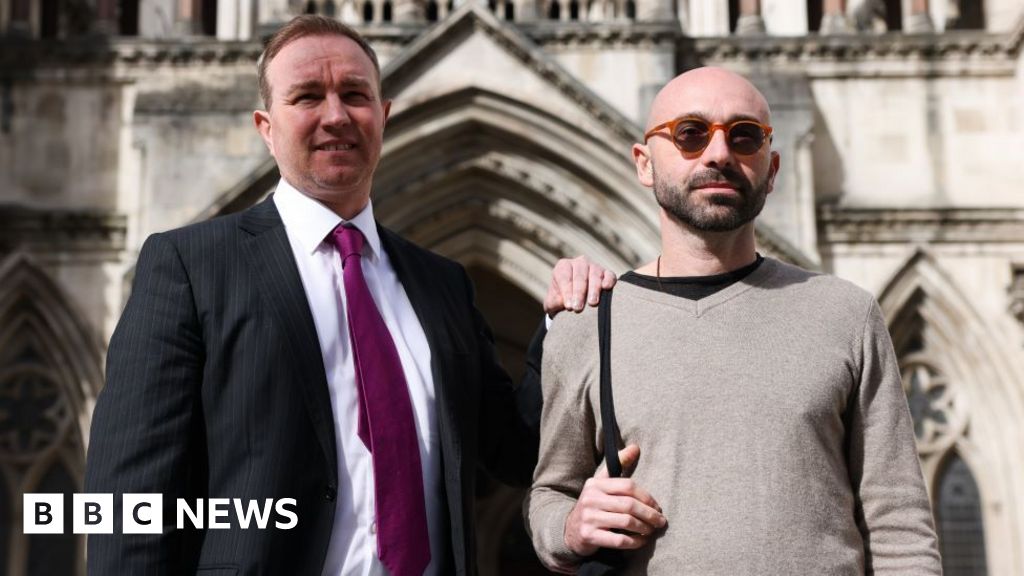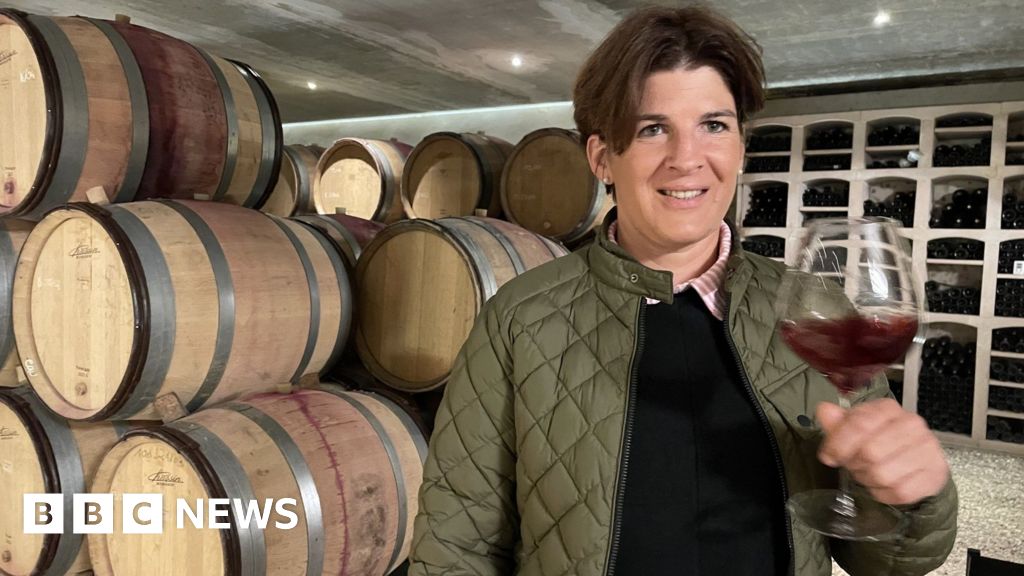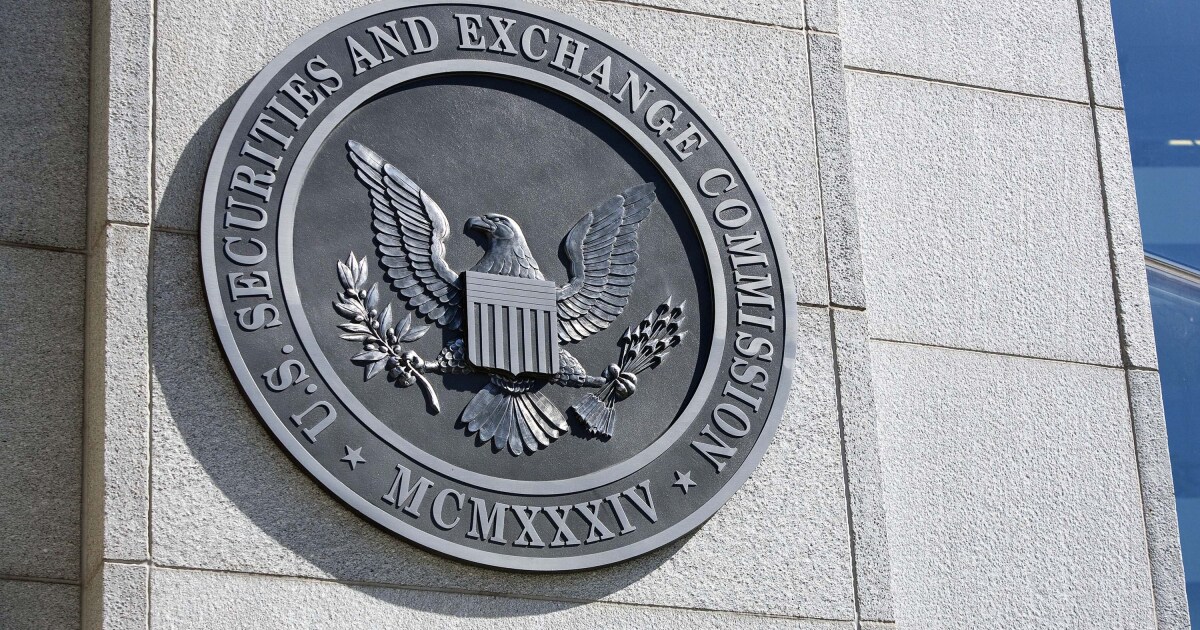Financial investigations correspondent
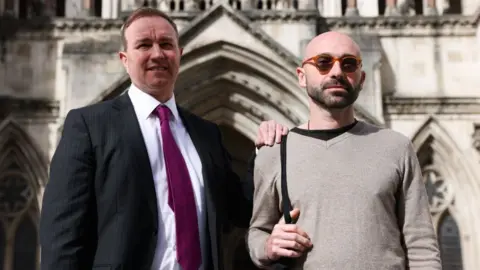 Bloomberg via Getty Images
Bloomberg via Getty ImagesThe Supreme Court is poised to rule on the cases of two former City traders jailed for rigging interest rates, amid concerns raised by senior politicians that there may have been a series of miscarriages of justice.
If the traders are successful in their application – which is opposed by the Serious Fraud Office (SFO) – it could lead to the quashing of all remaining convictions secured in nine criminal trials.
Tom Hayes, a former trader at the Swiss bank UBS, became the first banker to be jailed for “rigging” interest rates in August 2015.
He was accused at the age of 35 by the United States Department of Justice and the Serious Fraud Office of being a “ringmaster” of an international fraud conspiracy and sentenced to 14 years in jail.
Together with former Barclays trader Carlo Palombo, he is now awaiting a crucial Supreme Court judgement.
Hayes and Palombo were among 37 City traders prosecuted for “manipulating” the interest rate benchmarks Libor and Euribor, which track the cost of borrowing cash between the banks and are used to set the interest rates on millions of mortgages and commercial loans.
In criminal trials on both sides of the Atlantic from 2015 to 2019, 19 were convicted of conspiracy to defraud and nine were sent to jail.
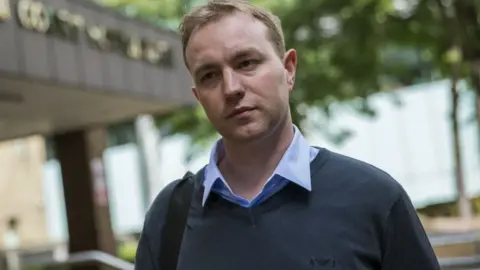 Reuters
ReutersAs they served time, evidence emerged that central bankers and government officials across the world, including a top adviser at 10 Downing Street at the time, had pressured banks such as theirs to engage in very similar conduct to what they were jailed for – but on a much greater scale.
No central banker or government official was prosecuted.
Then, soon after they were released after serving their full jail tariffs, a US appeal court decided such conduct wasn’t a crime after all; nor even against any rules.
The US Department of Justice revoked the charges against Tom Hayes, and the US courts then threw out all similar convictions.
Yet in the UK, they remain convicted criminals.
The Serious Fraud Office, which prosecuted the cases, says the defendants were convicted of conspiracy to defraud and points to a number of previous unsuccessful attempts to overturn convictions at the Court of Appeal.
The Supreme Court’s now being asked to decide if judges were wrong to tell juries their conduct was unlawful.
If it does so, it could lead to the overturning of all remaining convictions, throwing a global 17-year scandal into reverse.
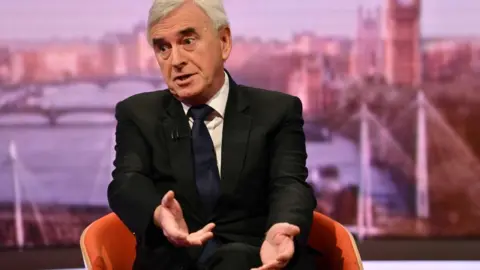
It’s also likely to prompt renewed calls for a public inquiry into evidence of much larger interest rate “rigging” – ordered from the top of the financial system by central banks and governments worldwide.
This is the first time the cases have reached the Supreme Court following public pressure from senior politicians, including former shadow chancellor John McDonnell and former Brexit Secretary David Davis.
They have told the BBC they’re concerned the traders have been “scapegoated” in a scandalous series of miscarriages of justice that runs “deeper than the Post Office”.
They want a public inquiry.
What is Libor ‘rigging’?
What the FTSE 100 or the Dow Jones are to share prices, Libor is to interest rates: an index, updated every day, that tracked the cost of borrowing cash between the banks from 1986 until 2024.
Each day at 11am, 16 banks across London would answer a question: at what interest rate could they borrow money?
Before answering, traders on the banks’ cash desks would look at the range of interest rates at which other banks on the market were offering to lend cash, which normally differed from each other by just one or two hundredths of a percentage point (e.g. HSBC offering to lend funds at 3.14%, Bank of China at 3.16%, JP Morgan at 3.15%).
Each bank would then select a rate from that range of offers to submit as their answer.
An average would then be taken to get the official benchmark, Libor (London Interbank Offered Rate).
A similar process was used to get Euribor, the equivalent of Libor for euros.
The evidence against Hayes and Palombo were messages they had sent to the cash traders asking them to select a ‘high’ or ‘low’ rate from that range, depending on what might benefit their banks’ trades – which went up or down in value linked to Libor (or Euribor).
Their requests might make no difference to the average; or they might nudge it very slightly in their bank’s favour – up or down by no more than one eighth of one hundredth of a percentage point (0.00125%).
But it was seen as worth the effort of making the requests, which had been industry practice for years, in case it might help their bank make more money or lose less.
Prosecutors alleged Hayes was dishonestly seeking to manipulate the Libor rate to benefit the bank’s trading positions and therefore his bonuses while “cheating” others trading on the market, “motivated by pure greed”.
The SFO accused Palombo of being a “crook” and a “cheat” who had “left his moral compass at home”.
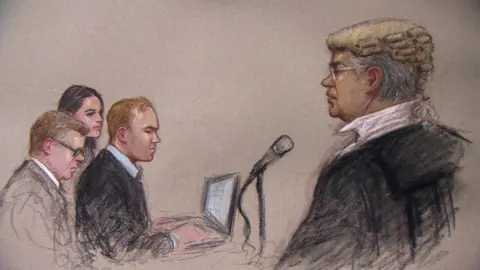 Julia Quenzler for BBC
Julia Quenzler for BBCThe traders protested that any potential gains to their bonuses from a nudge to Libor of a maximum 0.00125% were far too little to motivate a criminal conspiracy.
What they saw as the clerical task of choosing ‘high’ or ‘low’ rates based on the commercial interests of the bank – was merely what every bank had done since the 1980s, long before they started work.
But according to the SFO, it was interest rate “manipulation” that amounted to evidence of an international conspiracy to defraud.
At his 2015 trial, Hayes said he had not asked for any false answers to be given to the Libor question – but merely tried to ensure his bank selected a commercially advantageous rate from the range of accurate interest rates at which it could genuinely borrow.
But the judge, Mr Justice Jeremy Cooke, decided that any attempt to take into account commercial interests when submitting a Libor rate was “self-evidently” unlawful.
Sentencing Hayes to 14 years, he dismissed the argument that it was City practice.
“The fact that others were doing the same as you is no excuse, nor is the fact that your immediate managers saw the benefit of what you were doing and condoned and embraced it, if not encouraged it.[…] The conduct involved here must be marked out as dishonest and wrong and a message sent to the world of banking accordingly.”
The defendants say court rulings retrospectively criminalised not only their actions years before, but also those of senior bankers and civil servants, much higher up the financial pecking order, who had sought to influence Libor on a much greater scale.
Audio recordings, documents and data uncovered by the BBC indicate that in the 2008 financial crisis, governments and central banks from the Bank of England to the Banque de France and Banca d’Italia pressured banks to push Libor and Euribor down artificially in order to make real interest rates appear lower than they were and quell speculation about banks’ solvency – a highly commercial motive.
The difference, though, was that whereas the traders were asking for shifts of one hundredth of a percentage point, the central banks sought moves up to 50 times the size, giving rates that were obviously false, far away from the range of interest rates where cash was being borrowed or lent on the money markets.
In a BBC Radio 4 podcast series exposing the scandal, The Lowball Tapes, Palombo asks despairingly, “If that’s not criminal, how can I be a criminal?”
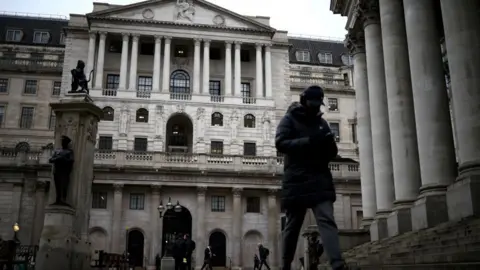 Reuters
ReutersContemporary emails and phone transcripts, official interviews by the FBI and first-hand accounts of witnesses point to the involvement of top officials at Downing Street and the Treasury.
They were not shown to the juries at the traders’ trials.
Palombo describes his life since being prosecuted as a “Kafka nightmare” where he could barely understand the accusations made against him, with no sense of having done anything even vaguely wrong.
To him and to Hayes, one of the most serious implications is that what happened to them could happen to anyone in the workplace – to them, if normal commercial practice can be retroactively criminalised, no-one can be sure that the daily tasks they’re currently engaged in at work won’t, in years to come, be condemned and prosecuted.
The Treasury has said it did not seek to influence individual bank Libor submissions.
The Bank of England has said Libor was not regulated at the time. The Banque de France, Banca d’Italia and the Federal Reserve have declined to comment.
In the traders’ cases the Court of Appeal, led by judges including Lord Chief Justice John Thomas and Lord Justice Nigel Davis, blocked the path to the Supreme Court five times from 2015 to 2019.
In 2021, the Criminal Cases Review Commission (CCRC) initially said it would turn down Hayes’s application.
But then in January 2022 a US appeal court fully acquitted two former Deutsche Bank traders, Matt Connolly and Gavin Black, saying prosecutors had failed to produce any evidence they had asked for false rates to be submitted at which their banks could not borrow.
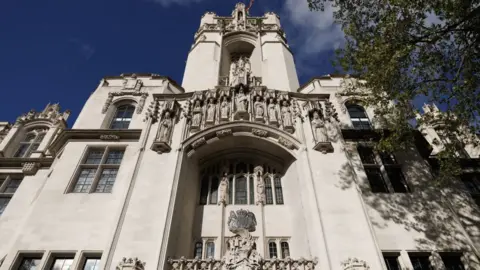 Getty Images
Getty ImagesAll US convictions for ‘rigging’ Libor were subsequently thrown out.
The pair had initially been convicted in 2018 on similar charges to Hayes and Palombo.
The following year, the CCRC was persuaded to change its mind.
In 2024, Court of Appeal judges certified, for the first time in these cases, that there was a point of law of general public importance at stake, finally clearing the path to the Supreme Court.
Two months ago, the Supreme Court heard arguments that judges in the lower courts had told juries that Hayes and Palombo’s requests were wrong as a matter of law – when it should have been left as a matter of fact for the jury to decide.
The SFO told the court the defendants didn’t challenge the jury directions at the time.
Hayes and Palombo now await the Supreme Court’s judgement.
Credit: Source link

